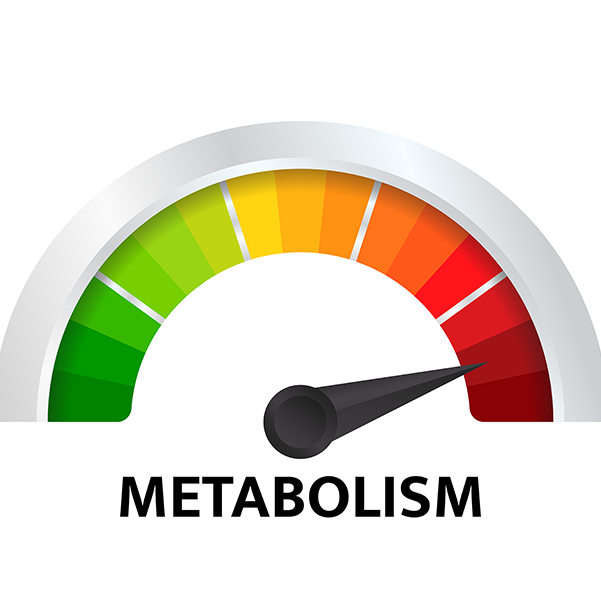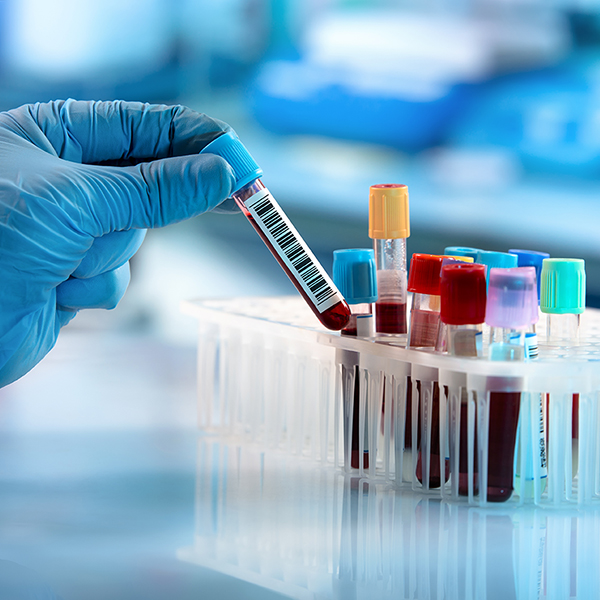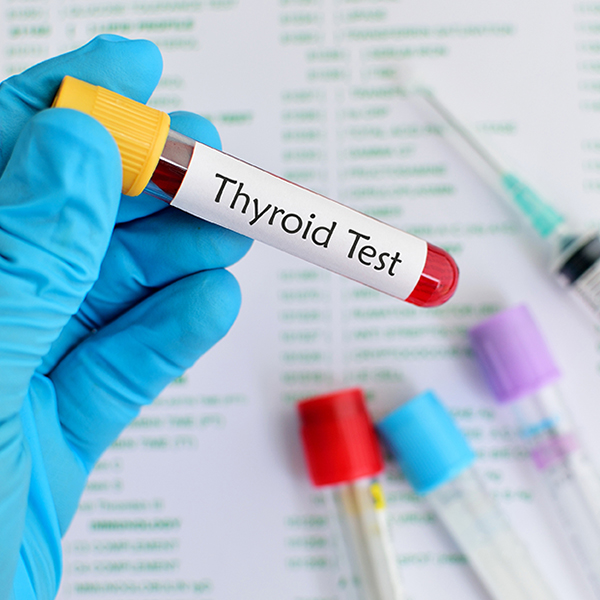Labs and Specialty Tests

CardioMetabolic Risk Test
Cardiovascular disease is the leading cause of death. Standard cholesterol tests can miss that YOU are at risk. SpectraCell’s CardioMetabolic Test offers a clinically relevant evaluation to help define risk for atherosclerotic cardiovascular disease (ASCVD), progression toward Type 2 Diabetes, and inflammation. It includes SpectraCell’s Advanced Lipoprotein Particle Profile™ Plus (LPPTM Plus), which measures lipoprotein size and density; cardiovascular risk stratification; and also includes triglycerides and traditional cholesterol screening.
Each patient is assigned a CardioMetabolic Risk Assessment, which is an indication of your risk (Low, Moderate or High) for developing cardiovascular disease, including stroke and diabetes. In addition, the Type 2 Diabetes Risk Assessment is an estimate of your risk of developing Type 2 Diabetes. These check points help patients understand that not just one factor, but rather a constellation of risk factors, contribute to the genesis and progression toward poor blood sugar control and/or ASCVD.
Results of testing allow doctors to know when guidance, educational referral, or treatment is necessary. Key components of the CardioMetabolic Risk Panel are listed below.
WHO SHOULD TAKE THE CARDIOMETABOLIC TEST OR PRE-DIABETES RISK PANEL?
All patients, and especially those who:
- Have a family history of heart disease or diabetes.
- Have been diagnosed with heart disease or diabetes.
- Are already taking cholesterol-lowering medications.
- Have been diagnosed with Metabolic Syndrome (high blood pressure)
- Are overweight
- Have high LDL – the bad cholesterol.
- Have low HDL – the good cholesterol.
- Have high triglycerides
I’VE ALREADY HAD MY CHOLESTEROL CHECKED, WHY SHOULD I HAVE THE CARDIOMETABOLIC TEST DONE?
Standard cholesterol testing only gives you part of the picture leaving many people with “normal” cholesterol numbers unaware that they are still at risk for a heart attack. The National Cholesterol Education Program introduced new risk factors that are responsible for many individuals at risk for cardiovascular disease.
According to the NCEP guidelines, 50% of people who have a heart attack have normal cholesterol levels.
Cholesterol is carried throughout the body in little balls called lipoproteins. It is the lipoproteins, not the cholesterol in them, that leads to clogging of the arteries.
PRE-DIABETES RISK
The Pre-Diabetes Biomarkers identify metabolic abnormalities that may progress into diabetes. Pre-diabetes is a condition where the body cannot efficiently metabolize foods, especially carbohydrates, resulting in impaired glycemic (blood sugar) control which may progress to diabetes when not properly treated or addressed through lifestyle changes.
SpectraCell’s Pre-Diabetes Risk Score is a way to estimate a patient’s risk of developing diabetes and associated complications such as heart disease or stroke. The following tests have the largest impact on the pre-diabetes risk score: hemoglobin A1c, fasting blood sugar and metabolic syndrome traits. Other factors that significantly affect a pre-diabetic risk but that are not included in this report include weight, blood pressure (hypertension), smoking, inflammation and family history.
- Glucose – snapshot of blood sugar at time of blood draw
- Insulin – correlates to the efficiency with which a person can metabolize carbohydrates; high fasting levels indicate insulin resistance and possible pre-diabetes.
- Hemoglobin A1C – long term (2-3 months) marker of glycemic control; also considered a marker of accelerated aging
- C-peptide – a measure of endogenous insulin production; useful in distinguishing between ty pe 1 and type 2 diabetes
- Adiponectin – a hormone that ezymatically controls metabolism; high levels beneficial and indicate efficient cellular energy production
- Metabolic syndrome traits – A diagnosis of metabolic syndrome is confirmed if any three of the following six traits exist in a patient: (1) high triglycerides (2) high glucose (3) low HDL (4) high blood pressure (5) high waist circumference or (6) increased small dense LDL
The CardioMetabolic Risk Panel is the test that could save your life.
Sample Test:
Cost: $350 (Retail $499)

Cardiovascular Risk Profile Test
Cardiovascular disease (CVD) is associated with more deaths than all cancers- and more deaths in women than breast cancer. This Cardiovascular Risk Profile evaluates a thorough battery of traditional and advanced biomarkers to aid in the early detection and modification of risk factors. This test measures the activity of lipoprotein-associated phospholipase-A2 (PLAC), as well as the true LDL culprits; oxidized LDL, small dense LDL and Lp(a), which are higher in CVD patients and correlated with the severity of CVD. A total of thirteen primary and secondary risk factors are evaluated to provide actionable information at a tremendous value.
Useful for:
Cardiovascular Disease
Lipid/Lipoprotein Profile
Heart Attack
Peripheral Artery Disease
Stroke
Cardioprotective Nutrient Status
Inflammation
Cost: $199 (Retail $299)

At-Home Urinary Hormone and Metabolites Test
The most accurate and comprehensive way to achieve and maintain balance between Testosterone, DHEA, Estrogens, Progesterone and HPA-Axis. The 24-hour Comprehensive Hormone Profile includes metabolic pathway markers for each leg of the Steroidogenic Pathway that afford practitioners the ability to avoid common hormone misinterpretations, achieve better clinical outcomes and detect common health issues early, such as Type II diabetes, hypothyroidism, metabolic syndrome and hormone-related cancer risk.
Useful for:
- Female:
- Menopausal symptoms
- Breast health
- Endometriosis
- PCOS
- PMS/PMDD
- Male
- Erectile dysfunction
- Prostate health
- Loss muscle mass
- General
- Metabolic syndrome
- Thyroid pathologies
- Inflammation
- Oxidative stress
- Fatigue/Insomnia
- Libido
- Mood
- Cognitive concerns
- Family history hormone-driven cancers
- HRT/BHRT utilization
- Weight gain
Cost: $299 sale (Retail $499)
Cardiovascular disease is the leading cause of death. Standard cholesterol tests can miss that YOU are at risk. SpectraCell’s CardioMetabolic Test offers a clinically relevant evaluation to help define risk for atherosclerotic cardiovascular disease (ASCVD), progression toward Type 2 Diabetes, and inflammation. It includes SpectraCell’s Advanced Lipoprotein Particle Profile™ Plus (LPPTM Plus), which measures lipoprotein size and density; cardiovascular risk stratification; and also includes triglycerides and traditional cholesterol screening.
Each patient is assigned a CardioMetabolic Risk Assessment, which is an indication of your risk (Low, Moderate or High) for developing cardiovascular disease, including stroke and diabetes. In addition, the Type 2 Diabetes Risk Assessment is an estimate of your risk of developing Type 2 Diabetes. These check points help patients understand that not just one factor, but rather a constellation of risk factors, contribute to the genesis and progression toward poor blood sugar control and/or ASCVD.
Results of testing allow doctors to know when guidance, educational referral, or treatment is necessary. Key components of the CardioMetabolic Risk Panel are listed below.
WHO SHOULD TAKE THE CARDIOMETABOLIC TEST OR PRE-DIABETES RISK PANEL?
All patients, and especially those who:
- Have a family history of heart disease or diabetes
- Have been diagnosed with heart disease or diabetes
- Are already taking cholesterol-lowering medications
- Have been diagnosed with Metabolic Syndrome (high blood pressure)
- Are overweight
- Have high LDL – the bad cholesterol
- Have low HDL – the good cholesterol
- Have high triglycerides
I’VE ALREADY HAD MY CHOLESTEROL CHECKED, WHY SHOULD I HAVE THE CARDIOMETABOLIC TEST DONE?
Standard cholesterol testing only gives you part of the picture leaving many people with “normal” cholesterol numbers unaware that they are still at risk for a heart attack. The National Cholesterol Education Program introduced new risk factors that are responsible for many individuals at risk for cardiovascular disease.
According to the NCEP guidelines, 50% of people who have a heart attack have normal cholesterol levels.
Cholesterol is carried throughout the body in little balls called lipoproteins. It is the lipoproteins, not the cholesterol in them, that leads to clogging of the arteries.
PRE-DIABETES RISK
The Pre-Diabetes Biomarkers identify metabolic abnormalities that may progress into diabetes. Pre-diabetes is a condition where the body cannot efficiently metabolize foods, especially carbohydrates, resulting in impaired glycemic (blood sugar) control which may progress to diabetes when not properly treated or addressed through lifestyle changes.
SpectraCell’s Pre-Diabetes Risk Score is a way to estimate a patient’s risk of developing diabetes and associated complications such as heart disease or stroke. The following tests have the largest impact on the pre-diabetes risk score: hemoglobin A1c, fasting blood sugar and metabolic syndrome traits. Other factors that significantly affect a pre-diabetic risk but that are not included in this report include weight, blood pressure (hypertension), smoking, inflammation and family history.
- Glucose – snapshot of blood sugar at time of blood draw
- Insulin – correlates to the efficiency with which a person can metabolize carbohydrates; high fasting levels indicate insulin resistance and possible pre-diabetes.
- Hemoglobin A1C – long term (2-3 months) marker of glycemic control; also considered a marker of accelerated aging
- C-peptide – a measure of endogenous insulin production; useful in distinguishing between ty pe 1 and type 2 diabetes
- Adiponectin – a hormone that ezymatically controls metabolism; high levels beneficial and indicate efficient cellular energy production
- Metabolic syndrome traits – A diagnosis of metabolic syndrome is confirmed if any three of the following six traits exist in a patient: (1) high triglycerides (2) high glucose (3) low HDL (4) high blood pressure (5) high waist circumference or (6) increased small dense LDL
The CardioMetabolic Risk Panel is the test that could save your life.
Sample Test:
Cost: $350 (Retail $499)
Cardiovascular disease (CVD) is associated with more deaths than all cancers- and more deaths in women than breast cancer. This Cardiovascular Risk Profile evaluates a thorough battery of traditional and advanced biomarkers to aid in the early detection and modification of risk factors. This test measures the activity of lipoprotein-associated phospholipase-A2 (PLAC), as well as the true LDL culprits; oxidized LDL, small dense LDL and Lp(a), which are higher in CVD patients and correlated with the severity of CVD. A total of thirteen primary and secondary risk factors are evaluated to provide actionable information at a tremendous value.
Useful for:
Cardiovascular Disease
Lipid/Lipoprotein Profile
Heart Attack
Peripheral Artery Disease
Stroke
Cardioprotective Nutrient Status
Inflammation
Cost: $199 (Retail $299)
The most accurate and comprehensive way to achieve and maintain balance between Testosterone, DHEA, Estrogens, Progesterone and HPA-Axis. The 24-hour Comprehensive Hormone Profile includes metabolic pathway markers for each leg of the Steroidogenic Pathway that afford practitioners the ability to avoid common hormone misinterpretations, achieve better clinical outcomes and detect common health issues early, such as Type II diabetes, hypothyroidism, metabolic syndrome and hormone-related cancer risk.
Useful for:
- Female:
- Menopausal symptoms
- Breast health
- Endometriosis
- PCOS
- PMS/PMDD
- Male
- Erectile dysfunction
- Prostate health
- Loss muscle mass
- General
- Metabolic syndrome
- Thyroid pathologies
- Inflammation
- Oxidative stress
- Fatigue/Insomnia
- Libido
- Mood
- Cognitive concerns
- Family history hormone-driven cancers
- HRT/BHRT utilization
- Weight gain
Cost: $299 sale (Retail $499)

At-Home Urine Metabolic Performance Profile
The Metabolic Performance Profile creates a personalized approach to optimal health through examining certain biomarkers of genetics, diet, lifestyle, environment, metabolism and detoxification to make assessments in the following areas; Cellular Energy Production, B-Vitamin and Methylation, Inflammation and Oxidative Stress, Muscle Assessment, Gut Assessment, and Essential and Non-Essential Amino Acids.
Metabolic Performance testing provides optimal nutrition which can help disease prevention and rebalance your body’s biochemical processes. The Metabolic Performance Profile and Nutrigenomics from Physicians Lab helps source the root cause of symptoms and problems, thereby allowing for personalized therapeutic and nutritional therapies leading you to optimal wellness.
Cost: $299 (Retail $399)

At-Home Urinary Amino Acid Test
Amino Acid (AA) analysis aids in the identification of dietary protein adequacy and amino acid balance, gastrointestinal dysfunctions, forms of protein intolerance, vitamin, and mineral deficiencies (particularly folic acid, B12, B6 metabolism, zinc and magnesium), renal and hepatic dysfunction, psychiatric abnormalities, susceptibility to inflammatory response and oxidative stress reduced detoxification capacity and many other inherent and acquired disorders in AA metabolism. Plasma is traditionally used to assess the status of essential AA’s, while urine testing provides more information regarding AA wasting, and aberrant metabolism associated with cofactor insufficiencies.
AA analysis aids in:
■ Dietary protein adequacy and AA balance
■ Gastrointestinal dysfunctions
■ Forms of protein intolerance
■ Vitamin and mineral deficiencies
■ Renal and hepatic dysfunction
■ Psychiatric abnormalities
■ Susceptibility to inflammatory response and oxidative stress
■ Reduced detoxification capacity
■ And many other inherent and acquired disorders in AA metabolism
Cost: $299 (Retail $399)

Galleri Multi-Cancer Early Detection Test
We now have an incredible new tool that allows us to detect when certain cancer types are present in the body. That tool is a multi-cancer early detection test by GRAIL called the Galleri test.
What is the Galleri Test?
The Galleri® cancer test is groundbreaking. It detects cancer-specific DNA in the blood and predicts where that cancerous DNA originated in the body. We learn the results quickly (typically in around 2 weeks), which means early detection and, when necessary, early intervention are possible right away.
It is recommended for use in adults with an elevated risk for cancer, such as those aged 50 or older. The Galleri® test is intended to detect cancer signals and predict where in the body the cancer signal is located. The test claims that the test has a very low false-positive rate of 0.5%. The test claims an 83% accuracy rate in predicting the location and directing the diagnostic workup needed for the cancer the test locates.
The Galleri® test does not detect all cancers and should be used in addition to routine cancer screening tests.
Many cancers don’t cause symptoms until later stages, so people don’t know to get tested until the cancer becomes advanced. The Galleri test offers us a simple way to detect over 50 different types of cancer early- and early detection saves lives!
What Cancers Does it Detect?
Here are a list of the over 50 cancers the Galleri Test detects- all with a simple blood draw
- Adrenal Cortical Carcinoma
- Ampulla of Vater
- Anal cancer
- Appendix, Carcinoma
- Bone cancer
- Breast cancer
- Cervical cancer
- Colon & Rectum cancer
- Esophagus & Esophagogastric Junction cancer
- Gallbladder cancer
- Gastrointestinal Stromal Tumor
- Gestational Trophoblastic Neoplasms
- Kidney cancer
- Larynx cancer
- Leukemia
- Liver cancer
- Lung cancer
- Lymphoma (Hodgkin & Non-Hodgkin)
- Melanoma of the Skin
- Mesothelioma, Malignant Pleural
- Merkel Cell Carcinoma
- Nasal Cavity & Paranasal Sinuses
- Nasopharynx
- Neuroendocrine Tumors of:
- Appendix
- Colon & Rectum
- Pancreas
- Oral Cavity cancer
- Oropharynx (HPV-Mediated, p16+)
- Oropharynx (p16-) & Hypopharynx
- Ovarian cancer, Fallopian Tube & Primary Peritoneum
- Pancreas, exocrine
- Penile cancer
- Plasma Cell Myeloma and Plasma Cell Disorders
- Prostate cancer
- Small Intestine cancer
- Soft Tissue Sarcoma of the Abdomen & Thoracic Visceral Organs
- Soft Tissue Sarcoma of:
- Head & Neck
- Retroperitoneum
- Trunk & Extremities
- Unusual Histologies & Sites
- Stomach cancer
- Testicular cancer
- Uterus, Carcinoma & Carcinosarcoma
- Uterus, Sarcoma
- Ureteral (& Renal Pelvis) cancer
- Vaginal cancer
- Vulva
How Does It Work:
- Contact our office for an online evaluation with Dr. Feltner
- Receive the Galleri blood collection kit via mail within 3-5 days
- Schedule an appointment online with a local lab (see all locations)
- You will receive the results in around 2 weeks
- If a cancer signal was found, call back to discuss your results with Dr. Feltner and/or your primary care physician, to help determine where in the body the cancer may be coming from
What does it Cost?
The Galleri Test is currently not covered by health insurance. If you have an FSA or HSA account through your employer, you may be able to use it to pay for the test. Our office charges $1250 which includes the initial evaluation to determine eligibility, blood draw kit, lab visit, blood draw, and follow-up consultation to discuss results with next steps.
Cost: $1250
Call today to find out if you are at risk.
The Metabolic Performance Profile creates a personalized approach to optimal health through examining certain biomarkers of genetics, diet, lifestyle, environment, metabolism and detoxification to make assessments in the following areas; Cellular Energy Production, B-Vitamin and Methylation, Inflammation and Oxidative Stress, Muscle Assessment, Gut Assessment, and Essential and Non-Essential Amino Acids.
Metabolic Performance testing provides optimal nutrition which can help disease prevention and rebalance your body’s biochemical processes. The Metabolic Performance Profile and Nutrigenomics from Physicians Lab helps source the root cause of symptoms and problems, thereby allowing for personalized therapeutic and nutritional therapies leading you to optimal wellness.
Cost: $299 (Retail $399)
Amino Acid (AA) analysis aids in the identification of dietary protein adequacy and amino acid balance, gastrointestinal dysfunctions, forms of protein intolerance, vitamin, and mineral deficiencies (particularly folic acid, B12, B6 metabolism, zinc, and magnesium), renal and hepatic dysfunction, psychiatric abnormalities, susceptibility to inflammatory response and oxidative stress reduced detoxification capacity and many other inherent and acquired disorders in AA metabolism. Plasma is traditionally used to assess the status of essential AA’s, while urine testing provides more information regarding AA wasting, and aberrant metabolism associated with cofactor insufficiencies.
AA analysis aids in:
• Dietary protein adequacy and AA balance
• Gastrointestinal dysfunctions
• Forms of protein intolerance
• Vitamin and mineral deficiencies
• Renal and hepatic dysfunction
• Psychiatric abnormalities
• Susceptibility to inflammatory response and oxidative stress
• Reduced detoxification capacity
• And many other inherent and acquired disorders in AA metabolism
Cost: $299 (Retail $399)
We now have an incredible new tool that allows us to detect when certain cancer types are present in the body. That tool is a multi-cancer early detection test by GRAIL called the Galleri test.
What is the Galleri Test?
The Galleri® cancer test is groundbreaking. It detects cancer-specific DNA in the blood and predicts where that cancerous DNA originated in the body. We learn the results quickly (typically in around 2 weeks), which means early detection and, when necessary, early intervention are possible right away.
It is recommended for use in adults with an elevated risk for cancer, such as those aged 50 or older. The Galleri® test is intended to detect cancer signals and predict where in the body the cancer signal is located. The test claims that the test has a very low false-positive rate of 0.5%. The test claims an 83% accuracy rate in predicting the location and directing the diagnostic workup needed for the cancer the test locates.
The Galleri® test does not detect all cancers and should be used in addition to routine cancer screening tests.
Many cancers don’t cause symptoms until later stages, so people don’t know to get tested until the cancer becomes advanced. The Galleri test offers us a simple way to detect over 50 different types of cancer early- and early detection saves lives!
What Cancers Does it Detect?
Here are a list of the over 50 cancers the Galleri Test detects- all with a simple blood draw
- Adrenal Cortical Carcinoma
- Ampulla of Vater
- Anal cancer
- Appendix, Carcinoma
- Bone cancer
- Breast cancer
- Cervical cancer
- Colon & Rectum cancer
- Esophagus & Esophagogastric Junction cancer
- Gallbladder cancer
- Gastrointestinal Stromal Tumor
- Gestational Trophoblastic Neoplasms
- Kidney cancer
- Larynx cancer
- Leukemia
- Liver cancer
- Lung cancer
- Lymphoma (Hodgkin & Non-Hodgkin)
- Melanoma of the Skin
- Mesothelioma, Malignant Pleural
- Merkel Cell Carcinoma
- Nasal Cavity & Paranasal Sinuses
- Nasopharynx
- Neuroendocrine Tumors of:
- Appendix
- Colon & Rectum
- Pancreas
- Oral Cavity cancer
- Oropharynx (HPV-Mediated, p16+)
- Oropharynx (p16-) & Hypopharynx
- Ovarian cancer, Fallopian Tube & Primary Peritoneum
- Pancreas, exocrine
- Penile cancer
- Plasma Cell Myeloma and Plasma Cell Disorders
- Prostate cancer
- Small Intestine cancer
- Soft Tissue Sarcoma of the Abdomen & Thoracic Visceral Organs
- Soft Tissue Sarcoma of:
- Head & Neck
- Retroperitoneum
- Trunk & Extremities
- Unusual Histologies & Sites
- Stomach cancer
- Testicular cancer
- Uterus, Carcinoma & Carcinosarcoma
- Uterus, Sarcoma
- Ureteral (& Renal Pelvis) cancer
- Vaginal cancer
- Vulva
How Does It Work:
- Contact our office for an online evaluation with Dr. Feltner
- Receive the Galleri blood collection kit via mail within 3-5 days
- Schedule an appointment online with a local lab (see all locations)
- You will receive the results in around 2 weeks
- If a cancer signal was found, call back to discuss your results with Dr. Feltner and/or your primary care physician, to help determine where in the body the cancer may be coming from
What does it Cost?
The Galleri Test is currently not covered by health insurance. If you have an FSA or HSA account through your employer, you may be able to use it to pay for the test. Our office charges $1250 which includes the initial evaluation to determine eligibility, blood draw kit, lab visit, blood draw, and follow-up consultation to discuss results with next steps.
Cost: $1250
Call today to find out if you are at risk.

Routine and Specialty Labs
Patients will be required to get labs for semaglutide/tirzepatide, weight loss management, thyroid management, insulin resistance, and or any other issue(s) Dr. Feltner is managing for you.
When undergoing treatment with weight loss medications like semaglutide, Wegovy, Ozempic, Mounjaro, and/or tirzepatide for obesity, it requires regularly measuring and monitoring your blood work/labs. These medications can have significant effects on various aspects of your health, and keeping track of your blood work helps Dr. Feltner ensure your treatment plan is on track and optimized for your individual needs.
Regular blood testing allows you to closely monitor your progress and make necessary adjustments to your treatment as needed. It provides valuable insights into how your body is responding, helping to gauge the effectiveness of the medication and achieving your weight loss goals. Monitoring your blood work is essential for several other reasons:
- Staying safe: Like all medications, these weight loss medications can sometimes cause side effects. This is why routine lab monitoring is important- by doing regular blood tests, you and Dr. Feltner can detect potential adverse reactions.
- Monitoring organ function: Many medications are processed by your liver and kidneys, so it is important to monitor your liver and kidney function when taking certain medications.
- Checking your nutrients: If you are taking additional supplements while using any GLP-1medication, it is important to keep track of your levels.
- Checking blood sugar: the GLP-1 medications are also used to control blood sugar levels in people with diabetes. Even if you are taking it for weight loss, it can still affect your blood sugar.
You should work with Dr. Feltner to determine the frequency of lab testing, and to see if any additional testing is needed.
Baseline Labs: CBC, CMP, Lipid Panel, A1C and thyroid testing.
Follow-up Labs: every 3-6 months, can include any other the following: CBC, CMP, Lipid Panel, A1C, thyroid, and can add B12, D3
Other Lab Tests Available:
- Blood Health: The CBC test assesses your overall blood health, including red and white blood cell counts and platelet levels, providing insights into your body’s ability to deliver oxygen and fight infections.
- Metabolic Health: The Comprehensive Metabolic Panel (CMP) and Lipid Panel with Ratios evaluate your metabolic health, including kidney and liver function, electrolyte balance, and lipid levels, essential for understanding your overall health.
- Thyroid Function: The T3, Free; T4, Free; and TSH tests assess thyroid function, which influences metabolism and energy levels.
- Inflammation Markers: The C-Reactive Protein (CRP) test and Sed Rate are tests that can help identify inflammation in the body, which can be associated with various health conditions.
- Heart and Vascular Health: The CardioMetabolic Test and Cardiovascular Risk Profile can provide a comprehensive evaluation of your heart and vascular health, including cholesterol levels, particle size, inflammatory markers, and potential cardiovascular risk.
- Hormonal Health: The At-Home Urine Hormone and Metabolite Test includes tests like Insulin, DHEA Sulfate, Estradiol, Progesterone, and Testosterone (Total, Free, and Sex Hormone Binding Globulin) evaluate hormonal balance, which is essential for overall well-being.
- Nutritional Health: The panel includes tests such as Ferritin, Folate, Iron, Magnesium, Phosphate, Transferrin, Vitamin B12, and Vitamin D, which offer insights into your nutritional status and potential deficiencies.
- Digestive Health: Tests for Amylase and Lipase help assess your digestive health.
- General Health
- Urine Toxin Test- can test for toxins, heavy metals and other toxic elements.
- Hair Test- for toxic metals, status of specific nutrients.
- GI Microbiome Test- identifies and characterizes the abundance and diversity of more than 45 targeted analytes. It tests sensitivity to unwanted bacteria and yeast can help enable the most effective herbs, antibiotics, or antifungals to be used in treatment.
- Many other options

Thyroid Lab Panel/
Fatigue Lab Test
Examining thyroid hormones and antibodies in combination can enhance the accuracy of diagnosis and clinical outcomes. The American Thyroid Association reports that approximately 20 million Americans have thyroid disorders, and roughly 60% of those affected remain unaware of their condition. Many individuals with thyroid issues may go undiagnosed due to their asymptomatic or non-specific clinical presentations. Recognizing autoimmunity as a primary contributor to thyroid dysfunction has prompted the inclusion of auto-antibody assessment in thyroid testing.
Relying solely on thyroid-stimulating hormone (TSH) measurements can be misleading in various situations, including recent thyrotoxicosis treatment, pituitary disorders, non-thyroid illnesses, thyroid hormone resistance, or rare cases involving TSH-secreting tumors. In these scenarios and many others, the combined evaluation of thyroid hormones and thyroid antibodies can provide clarity in diagnosing thyroid conditions and enhance clinical outcomes.
Useful for:
- Hypothyroid conditions
- Hyperthyroid conditions
- Autoimmune conditions
- Arrhythmia
- Infertility
- Cholesterol disorders
- Fatigue
- Pituitary disorders
Cost: $100
Some insurance companies will cover these labs
Sample Test:
Collection Instructions:
Fatigue Lab Test
Are you chronically tired? Maybe it is more than just fatigue?
Fatigue is a symptom that can greatly affect individuals. It can affect quality of life, including professional, family and social relationships.
A Fatigue Lab Test is a blood test that can help identify various medical conditions or factors that might be contributing to fatigue. These tests analyse different components of the blood to provide information about overall health. The specific blood tests commonly included in a fatigue blood test can vary, but here are some of the typical components:
- Complete Blood Count (CBC): A CBC measures various components of your blood, including:
- Red blood cells (RBCs): To assess for anemia or other blood disorders.
- White blood cells (WBCs): To check for signs of infection or inflammation.
- Platelets: To evaluate your blood’s ability to clot properly.
- Hemoglobin (Hb) and Hematocrit (Hct): These measures indicate the concentration of hemoglobin in your blood and the percentage of your blood volume occupied by red blood cells. Low levels can suggest anemia, which may lead to fatigue.
- Comprehensive Metabolic Panel (CMP): This panel includes tests for various electrolytes, blood glucose, and organ function, including:
- Glucose: To evaluate your blood sugar levels.
- Electrolytes (sodium, potassium, chloride, and bicarbonate): To assess electrolyte balance.
- Kidney function (creatinine and blood urea nitrogen): To check for kidney problems.
- Liver function (bilirubin, albumin, and liver enzymes): To assess liver health.
- Thyroid Function Tests: Thyroid function tests include measuring thyroid hormones such as TSH (Thyroid-Stimulating Hormone), T3 (Triiodothyronine), and T4 (Thyroxine). Thyroid disorders, particularly hypothyroidism, can lead to fatigue.
- Iron Studies: These include tests like serum iron, ferritin, and total iron-binding capacity (TIBC) to assess your iron levels. Low iron levels can contribute to anemia and fatigue.
- Vitamin and Mineral Levels: Tests for specific vitamins and minerals, such as vitamin D, vitamin B12, and folate, may be performed to check for deficiencies that can lead to fatigue.
- Inflammatory Markers: Erythrocyte sedimentation rate (ESR) and C-reactive protein (CRP) may be measured to assess for inflammation in the body, which can be associated with chronic fatigue.
The specific blood tests included in a fatigue panel can vary based on the initial assessment and symptoms. The results of these tests can help identify potential underlying causes of fatigue, such as anemia, thyroid disorders, diabetes, vitamin deficiencies, and more.
Cost: $100-$225 (depending on various tests)

DEXA Scan Test
A DEXA scan, which stands for Dual-Energy X-ray Absorptiometry, is a medical imaging technique that is primarily used to measure bone density, but it can also provide valuable information about body composition. Here’s an overview of what a DEXA scan is and its benefits:
- Bone Density Measurement: DEXA scans are most commonly used to assess bone health. They can accurately measure bone mineral density (BMD) in various parts of the body, usually the hip and spine. This information is crucial for diagnosing conditions like osteoporosis or osteopenia, which involve a loss of bone density, and for assessing the risk of fractures.
- Body Composition Analysis: In addition to bone density, DEXA scans can also provide insights into body composition. They can differentiate between different types of tissue in the body, primarily fat, lean muscle, and bone. This allows for a precise assessment of:
- Body Fat Percentage: DEXA scans can measure the percentage of body fat in different regions of the body, such as the arms, legs, and trunk. This can be valuable for individuals looking to monitor their body fat levels, especially athletes and those aiming for weight management or body composition changes.
- Lean Muscle Mass: DEXA scans can determine the amount of lean muscle mass, which is beneficial for athletes, bodybuilders, or anyone interested in tracking their muscle development.
- Visceral Fat: DEXA scans can identify the presence and amount of visceral fat, which is the fat stored in the abdominal cavity and around internal organs. Excessive visceral fat is associated with various health risks.
- Accurate and Precise: DEXA scans are considered one of the most accurate methods for measuring body composition. They are more precise than methods like bioelectrical impedance or skinfold measurements, making them particularly useful for research, clinical assessments, and tracking changes over time.
- Monitoring Health and Fitness Goals: DEXA scans can help individuals track their progress when it comes to weight loss, muscle gain, or overall body composition changes. This information can be motivating and guide fitness and dietary decisions.
- Health Risk Assessment: Knowing your body composition can also help assess your risk for various health conditions, such as heart disease, diabetes, and metabolic syndrome, as it can provide insights into factors like visceral fat and muscle mass.
- Tailored Fitness and Nutrition Plans: With accurate body composition data, individuals and healthcare professionals can develop customized fitness and nutrition plans to meet specific health and fitness goals.
How will the results help me??
A DEXA scan will give you a highly accurate baseline to help you achieve your goals. By knowing your body fat and lean tissue percentage, you can make lifestyle changes to improve your health and reduce your risk for various diseases.
The results of your scan, along with Resting Metabolic Rate (RMR) and VO2 testing, can also be used to recommend specific information on your ideal caloric intake and energy expenditure, helping you achieve your goals of fat loss or muscle gain quantitatively, virtually eliminating opinion based feedback.
By having your body composition monitored periodically, you will also be able to objectively track your progress towards goals. Quantifying these changes also helps with updating dietary and activity requirements. Feedback from DEXA scans can also be a powerful motivational tool for this purpose.
Is DEXA safe?
A DEXA scan emits very low-dose x-ray beams, even less than a chest x-ray!
A DEXA Scan poses no significant health risk, and you would receive a similar amount of background radiation on a return flight from Sydney to Melbourne.
However, you should not have a DEXA scan if you’re pregnant, potentially pregnant, or if you’ve recently had any other more powerful imaging (such as an MRI or CT scan) with contrasts like iodine.
What does getting a DEXA Scan involve?
Most insurance companies do not pay for a DEXA Scan.
We will find you find an Imaging center near you where you can get it done.
We work with FitnesCity who has additional centers that provide discounted DEXA Scans.
To prepare for your DEXA scan please arrive in clothing free from metal (zips or buttons), preferably underwear, shorts and t-shirt or similar.
To have a scan, you’ll simply be asked to lie flat on the padded table while the arm of the machine passes over your body.
The scan typically takes less than 10 minutes!
Cost: $50-$330
Call to find out the cost in your area.
Patients will be required to get labs for semaglutide/tirzepatide, weight loss management, thyroid management, insulin resistance, and or any other issue(s) Dr. Feltner is managing for you.
When undergoing treatment with weight loss medications like semaglutide, Wegovy, Ozempic, Mounjaro, and/or tirzepatide for obesity, it requires regularly measuring and monitoring your blood work/labs. These medications can have significant effects on various aspects of your health, and keeping track of your blood work helps Dr. Feltner ensure your treatment plan is on track and optimized for your individual needs.
Regular blood testing allows you to closely monitor your progress and make necessary adjustments to your treatment as needed. It provides valuable insights into how your body is responding, helping to gauge the effectiveness of the medication and achieving your weight loss goals. Monitoring your blood work is essential for several other reasons:
- Staying safe: Like all medications, these weight loss medications can sometimes cause side effects. This is why routine lab monitoring is important- by doing regular blood tests, you and Dr. Feltner can detect potential adverse reactions.
- Monitoring organ function: Many medications are processed by your liver and kidneys, so it is important to monitor your liver and kidney function when taking certain medications.
- Checking your nutrients: If you are taking additional supplements while using any GLP-1medication, it is important to keep track of your levels.
- Checking blood sugar: the GLP-1 medications are also used to control blood sugar levels in people with diabetes. Even if you are taking it for weight loss, it can still affect your blood sugar.
You should work with Dr. Feltner to determine the frequency of lab testing, and to see if any additional testing is needed.
Baseline Labs: CBC, CMP, Lipid Panel, A1C and thyroid testing.
Follow-up Labs: every 3-6 months, can include any other the following: CBC, CMP, Lipid Panel, A1C, thyroid, and can add B12, D3
Other Lab Tests Available:
- Blood Health: The CBC test assesses your overall blood health, including red and white blood cell counts and platelet levels, providing insights into your body’s ability to deliver oxygen and fight infections.
- Metabolic Health: The Comprehensive Metabolic Panel (CMP) and Lipid Panel with Ratios evaluate your metabolic health, including kidney and liver function, electrolyte balance, and lipid levels, essential for understanding your overall health.
- Thyroid Function: The T3, Free; T4, Free; and TSH tests assess thyroid function, which influences metabolism and energy levels.
- Inflammation Markers: The C-Reactive Protein (CRP) test and Sed Rate are tests that can help identify inflammation in the body, which can be associated with various health conditions.
- Heart and Vascular Health: The CardioMetabolic Test and Cardiovascular Risk Profile can provide a comprehensive evaluation of your heart and vascular health, including cholesterol levels, particle size, inflammatory markers, and potential cardiovascular risk.
- Hormonal Health: The At-Home Urine Hormone and Metabolite Test includes tests like Insulin, DHEA Sulfate, Estradiol, Progesterone, and Testosterone (Total, Free, and Sex Hormone Binding Globulin) evaluate hormonal balance, which is essential for overall well-being.
- Nutritional Health: The panel includes tests such as Ferritin, Folate, Iron, Magnesium, Phosphate, Transferrin, Vitamin B12, and Vitamin D, which offer insights into your nutritional status and potential deficiencies.
- Digestive Health: Tests for Amylase and Lipase help assess your digestive health.
- General Health
- Urine Toxin Test- can test for toxins, heavy metals and other toxic elements.
- Hair Test- for toxic metals, status of specific nutrients.
- GI Microbiome Test- identifies and characterizes the abundance and diversity of more than 45 targeted analytes. It tests sensitivity to unwanted bacteria and yeast can help enable the most effective herbs, antibiotics, or antifungals to be used in treatment.
- Many other options
Examining thyroid hormones and antibodies in combination can enhance the accuracy of diagnosis and clinical outcomes. The American Thyroid Association reports that approximately 20 million Americans have thyroid disorders, and roughly 60% of those affected remain unaware of their condition. Many individuals with thyroid issues may go undiagnosed due to their asymptomatic or non-specific clinical presentations. Recognizing autoimmunity as a primary contributor to thyroid dysfunction has prompted the inclusion of auto-antibody assessment in thyroid testing.
Relying solely on thyroid-stimulating hormone (TSH) measurements can be misleading in various situations, including recent thyrotoxicosis treatment, pituitary disorders, non-thyroid illnesses, thyroid hormone resistance, or rare cases involving TSH-secreting tumors. In these scenarios and many others, the combined evaluation of thyroid hormones and thyroid antibodies can provide clarity in diagnosing thyroid conditions and enhance clinical outcomes.
Useful for:
- Hypothyroid conditions
- Hyperthyroid conditions
- Autoimmune conditions
- Arrhythmia
- Infertility
- Cholesterol disorders
- Fatigue
- Pituitary disorders
Cost: $100
Some insurance companies will cover these labs
Sample Test:
Collection Instructions:
Fatigue Lab Test
Are you chronically tired? Maybe it is more than just fatigue?
Fatigue is a symptom that can greatly affect individuals. It can affect quality of life, including professional, family and social relationships.
A Fatigue Lab Test is a blood test that can help identify various medical conditions or factors that might be contributing to fatigue. These tests analyse different components of the blood to provide information about overall health. The specific blood tests commonly included in a fatigue blood test can vary, but here are some of the typical components:
- Complete Blood Count (CBC): A CBC measures various components of your blood, including:
- Red blood cells (RBCs): To assess for anemia or other blood disorders.
- White blood cells (WBCs): To check for signs of infection or inflammation.
- Platelets: To evaluate your blood’s ability to clot properly.
- Hemoglobin (Hb) and Hematocrit (Hct): These measures indicate the concentration of hemoglobin in your blood and the percentage of your blood volume occupied by red blood cells. Low levels can suggest anemia, which may lead to fatigue.
- Comprehensive Metabolic Panel (CMP): This panel includes tests for various electrolytes, blood glucose, and organ function, including:
- Glucose: To evaluate your blood sugar levels.
- Electrolytes (sodium, potassium, chloride, and bicarbonate): To assess electrolyte balance.
- Kidney function (creatinine and blood urea nitrogen): To check for kidney problems.
- Liver function (bilirubin, albumin, and liver enzymes): To assess liver health.
- Thyroid Function Tests: Thyroid function tests include measuring thyroid hormones such as TSH (Thyroid-Stimulating Hormone), T3 (Triiodothyronine), and T4 (Thyroxine). Thyroid disorders, particularly hypothyroidism, can lead to fatigue.
- Iron Studies: These include tests like serum iron, ferritin, and total iron-binding capacity (TIBC) to assess your iron levels. Low iron levels can contribute to anemia and fatigue.
- Vitamin and Mineral Levels: Tests for specific vitamins and minerals, such as vitamin D, vitamin B12, and folate, may be performed to check for deficiencies that can lead to fatigue.
- Inflammatory Markers: Erythrocyte sedimentation rate (ESR) and C-reactive protein (CRP) may be measured to assess for inflammation in the body, which can be associated with chronic fatigue.
The specific blood tests included in a fatigue panel can vary based on the initial assessment and symptoms. The results of these tests can help identify potential underlying causes of fatigue, such as anemia, thyroid disorders, diabetes, vitamin deficiencies, and more.
Cost: $100-$225 (depending on various tests)
A DEXA scan, which stands for Dual-Energy X-ray Absorptiometry, is a medical imaging technique that is primarily used to measure bone density, but it can also provide valuable information about body composition. Here’s an overview of what a DEXA scan is and its benefits:
- Bone Density Measurement: DEXA scans are most commonly used to assess bone health. They can accurately measure bone mineral density (BMD) in various parts of the body, usually the hip and spine. This information is crucial for diagnosing conditions like osteoporosis or osteopenia, which involve a loss of bone density, and for assessing the risk of fractures.
- Body Composition Analysis: In addition to bone density, DEXA scans can also provide insights into body composition. They can differentiate between different types of tissue in the body, primarily fat, lean muscle, and bone. This allows for a precise assessment of:
- Body Fat Percentage: DEXA scans can measure the percentage of body fat in different regions of the body, such as the arms, legs, and trunk. This can be valuable for individuals looking to monitor their body fat levels, especially athletes and those aiming for weight management or body composition changes.
- Lean Muscle Mass: DEXA scans can determine the amount of lean muscle mass, which is beneficial for athletes, bodybuilders, or anyone interested in tracking their muscle development.
- Visceral Fat: DEXA scans can identify the presence and amount of visceral fat, which is the fat stored in the abdominal cavity and around internal organs. Excessive visceral fat is associated with various health risks.
- Accurate and Precise: DEXA scans are considered one of the most accurate methods for measuring body composition. They are more precise than methods like bioelectrical impedance or skinfold measurements, making them particularly useful for research, clinical assessments, and tracking changes over time.
- Monitoring Health and Fitness Goals: DEXA scans can help individuals track their progress when it comes to weight loss, muscle gain, or overall body composition changes. This information can be motivating and guide fitness and dietary decisions.
- Health Risk Assessment: Knowing your body composition can also help assess your risk for various health conditions, such as heart disease, diabetes, and metabolic syndrome, as it can provide insights into factors like visceral fat and muscle mass.
- Tailored Fitness and Nutrition Plans: With accurate body composition data, individuals and healthcare professionals can develop customized fitness and nutrition plans to meet specific health and fitness goals.
How will the results help me??
A DEXA scan will give you a highly accurate baseline to help you achieve your goals. By knowing your body fat and lean tissue percentage, you can make lifestyle changes to improve your health and reduce your risk for various diseases.
The results of your scan, along with Resting Metabolic Rate (RMR) and VO2 testing, can also be used to recommend specific information on your ideal caloric intake and energy expenditure, helping you achieve your goals of fat loss or muscle gain quantitatively, virtually eliminating opinion based feedback.
By having your body composition monitored periodically, you will also be able to objectively track your progress towards goals. Quantifying these changes also helps with updating dietary and activity requirements. Feedback from DEXA scans can also be a powerful motivational tool for this purpose.
Is DEXA safe?
A DEXA scan emits very low-dose x-ray beams, even less than a chest x-ray!
A DEXA Scan poses no significant health risk, and you would receive a similar amount of background radiation on a return flight from Sydney to Melbourne.
However, you should not have a DEXA scan if you’re pregnant, potentially pregnant, or if you’ve recently had any other more powerful imaging (such as an MRI or CT scan) with contrasts like iodine.
What does getting a DEXA Scan involve?
Most insurance companies do not pay for a DEXA Scan.
We will find you find an Imaging center near you where you can get it done.
We work with FitnesCity who has additional centers that provide discounted DEXA Scans.
To prepare for your DEXA scan please arrive in clothing free from metal (zips or buttons), preferably underwear, shorts and t-shirt or similar.
To have a scan, you’ll simply be asked to lie flat on the padded table while the arm of the machine passes over your body.
The scan typically takes less than 10 minutes!
Cost: $50-$330
Call to find out the cost in your area.
DISCLOSURE
It is important to note that the use of peptides, supplements, or vitamins for health and wellness is a developing field, and not all vitamin-based treatments or products have been extensively studied or approved by regulatory agencies. Before taking any peptides, vitamins, or supplements, it is advisable to consult with a healthcare professional to determine the most appropriate form and dosage, especially because the effectiveness and safety may vary from person to person, as well as to ensure that it won’t interact with any medications or underlying medical conditions. Self-administration of injections carries risks, and it’s important to approach their use responsibly and with a thorough understanding of the potential benefits and risks involved.
- Tesofensine, a monoamine reuptake inhibitor for the treatment of obesity
- Tesofensine Anti-Obesity Medication
- Tesofensine (NS 2330), a Monoamine Reuptake Inhibitor, in Patients With Advanced Parkinson Disease and Motor Fluctuations
- New antiobesity drug, tesofensine, shows good phase II results
- Contribution of the active metabolite M1 to the pharmacological activity of tesofensine in vivo: a pharmacokinetic-pharmacodynamic modelling approach
- Effect of tesofensine on bodyweight loss, body composition, and quality of life in obese patients: a randomised, double-blind, placebo-controlled trial
- [The effect of tesofensine on body weight and body composition in obese subjects–secondary publication]
- The Effect of Tesofensine on Weight Loss, Appetite, Physical Activity and QOL in Obese Subjects. Results from a 24-Week Randomised, Double-Blind Placebo-Controlled Trial
- Therapeutic potential of NAD-boosting molecules: the in vivo evidence
- Glutathione
- The Antioxidant Role of Glutathione and N-Acetyl-Cysteine Supplements and Exercise-Induced Oxidative Stress
- Evaluation of Methionine Content in a High-Fat and Choline-Deficient Diet on Body Weight Gain and the Development of Non-Alcoholic Steatohepatitis in Mice
- Low Vitamin B12 and Lipid Metabolism: Evidence from Pre-Clinical and Clinical Studies.
- Effectiveness of Coenzyme Q10 Supplementation for Reducing Fatigue: A Systematic Review and Meta-Analysis of Randomized Controlled Trials
- Coenzyme Q10 in the treatment of heart failure: A systematic review of systematic reviews
- The Role of l-Carnitine in Mitochondria, Prevention of Metabolic Inflexibility and Disease Initiation
- Effects of l-carnitine supplementation on weight loss and body composition: A systematic review and meta-analysis of 37 randomized controlled clinical trials with dose-response analysis
Virtual Care.....From Anywhere!
MD by the Sea is as easy as A-B-C
HOW IT WORKS


Fill out medical history forms.

Schedule your virtual visit.

